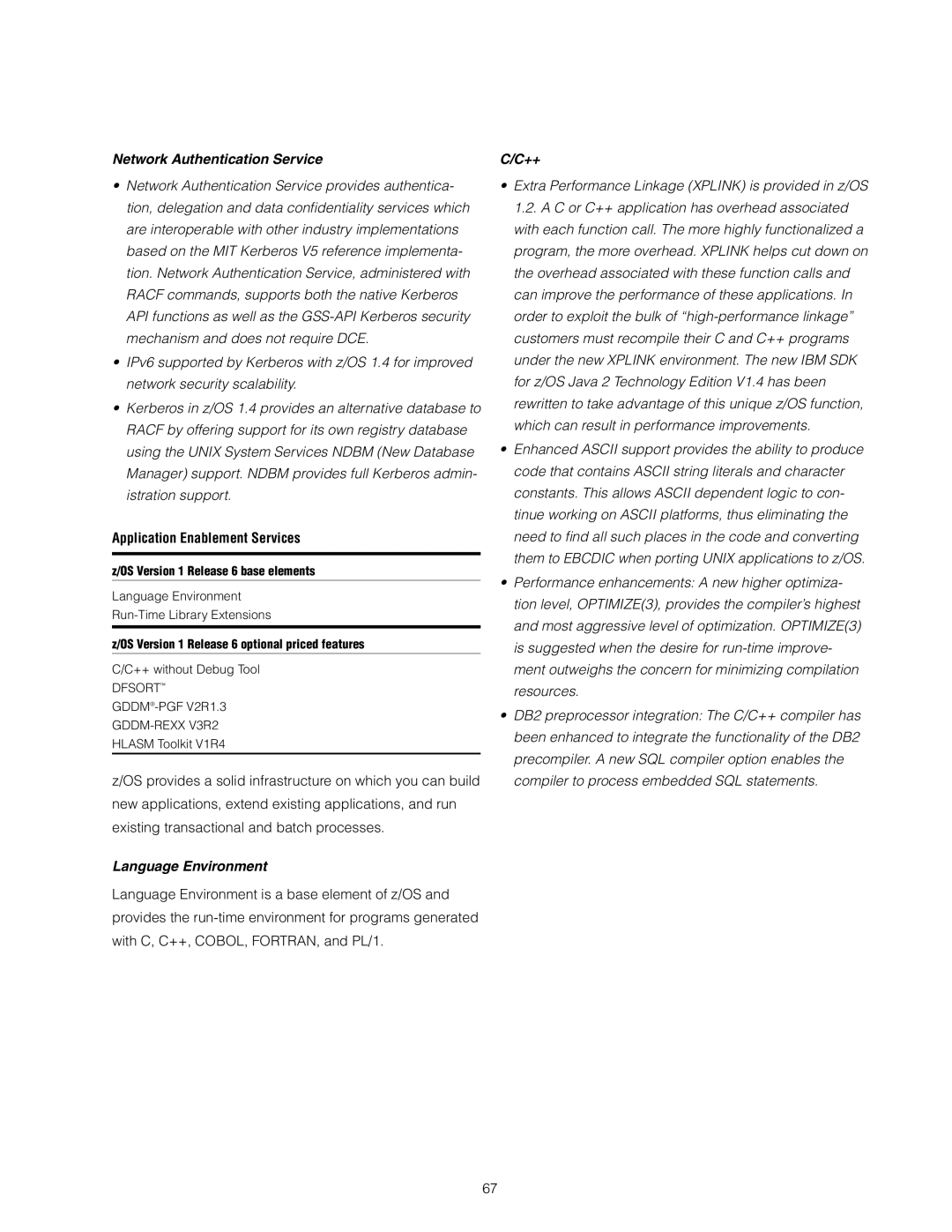
Network Authentication Service
•Network Authentication Service provides authentica- tion, delegation and data confi dentiality services which are interoperable with other industry implementations based on the MIT Kerberos V5 reference implementa- tion. Network Authentication Service, administered with RACF commands, supports both the native Kerberos API functions as well as the
•IPv6 supported by Kerberos with z/OS 1.4 for improved network security scalability.
•Kerberos in z/OS 1.4 provides an alternative database to RACF by offering support for its own registry database using the UNIX System Services NDBM (New Database Manager) support. NDBM provides full Kerberos admin- istration support.
Application Enablement Services
z/OS Version 1 Release 6 base elements
Language Environment
z/OS Version 1 Release 6 optional priced features
C/C++ without Debug Tool
DFSORT™
HLASM Toolkit V1R4
z/OS provides a solid infrastructure on which you can build new applications, extend existing applications, and run existing transactional and batch processes.
Language Environment
Language Environment is a base element of z/OS and provides the
C/C++
•Extra Performance Linkage (XPLINK) is provided in z/OS 1.2. A C or C++ application has overhead associated with each function call. The more highly functionalized a program, the more overhead. XPLINK helps cut down on the overhead associated with these function calls and can improve the performance of these applications. In order to exploit the bulk of
•Enhanced ASCII support provides the ability to produce code that contains ASCII string literals and character constants. This allows ASCII dependent logic to con- tinue working on ASCII platforms, thus eliminating the need to fi nd all such places in the code and converting them to EBCDIC when porting UNIX applications to z/OS.
•Performance enhancements: A new higher optimiza- tion level, OPTIMIZE(3), provides the compiler’s highest and most aggressive level of optimization. OPTIMIZE(3) is suggested when the desire for
•DB2 preprocessor integration: The C/C++ compiler has been enhanced to integrate the functionality of the DB2 precompiler. A new SQL compiler option enables the compiler to process embedded SQL statements.
67
